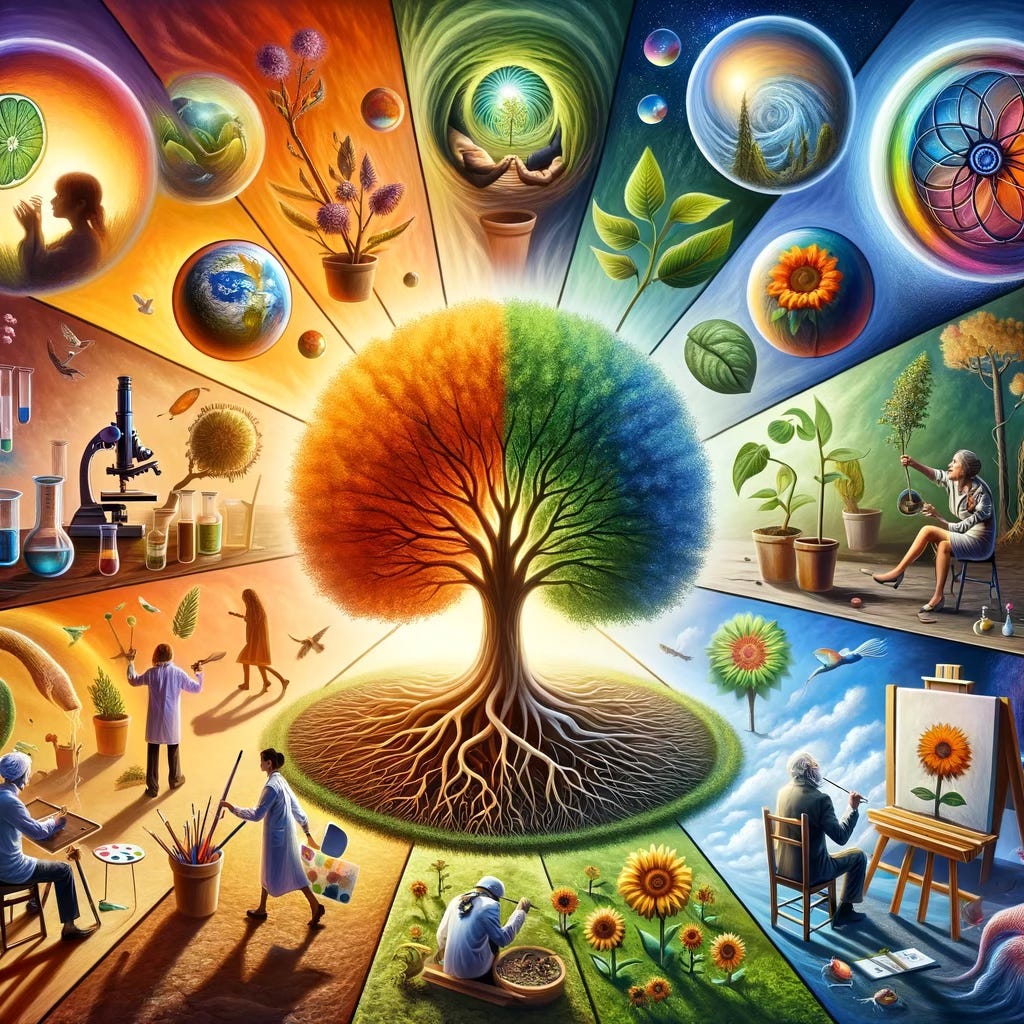Humanity’s Values is a reader-supported publication. Please consider subscribing to support the delivery of the content you appreciate. Also, feel free to share and expand the community of reflective criticism.
More is more, so says the hobgoblin of the American spirit, that creature of consumerist delights sitting on a shoulder, whispering the sweet nothings of one’s lack. A barrage of messages making everything how someone else has something one does not. The grass is always greener on the other side in the land of lack. "I have not found myself" is the cliche of he or she who journeys in the valley of loss. Every shopping venture that ends with having bought too much, every sigh at seeing the happiness of a relationship you are not in, sprouts new weeds of self-doubt and misery. We all see it in the endless grappling to reach “the top,” we all feel that niggling question that if only I had “x” then the world would be a place of sunshine and rainbows, of free-flowing streams of love and the constant budding growth of health and energy. Our perspective guides the possibilities that we can experience in life.
"There is really, then, no limitation outside our own ignorance, and since we all can conceive a greater good than we have so far experienced, we all have within our own minds the ability to transcend previous experiences and rise triumphant over them..." (Ernest Holmes, from "Can We Talk To God?")
This fundamental perception is self-perpetuating. When one begins with lack, then lack is all one sees. Each new possession, relationship goal met, or job found is shaped and molded by the beat and drum of a mindset upon filling an inexhaustible gullet of more is more. Nothing is “good enough” because “enough” is never satisfied or filled. Lack of love brings forth the notion that all relationships are, at some level, wrong or deluded. Lack of money promotes the idea that someone else has already eaten or taken away the social pie. Lack of wholeness leads to a world "lost in sin,” where shame is indelibly linked to existence. This space is not without a degree of comfort. The tyranny of low expectations smothers the flames of possibility effectively and without much fuss, leaving behind a vague feeling of emptiness, of a nebulous something that could have been.
“We must find new meanings to life if we hope to create new images which, in their turn, will supply new reflections” (Holmes). What if, for a moment, the thought of lack is replaced with that of plenty? I am not asserting that reality be ignored. There are very real issues of hunger, financial ruin and social isolation which are truly experienced with all their accompanying difficulties. Circumstance is not here what I speak of, rather the perspective that narrows or expands the potential vision of our experiences and acquired meaning.
A mentality of lack sees only limitation and therefore further builds lack everywhere through the paucity of experience. A mentality of plenty sees potential within the experiences that are already being had, with an eye towards responses we had previously been incapable of seeing. Clouds in the sky that used to contain a storm here become canvases of imagination. Finding $5 in the wallet becomes having more than what was known before. Having no plans for an evening turns into opportunities for self-exploration and seeking out social gatherings. Looking at the happiness of other relationships becomes enjoyment in the ability to empathize and feel a version of that joy.
In every notion of lack lies the kernel of plenty’s birth. There is nothing “only” about what one finds in the mirror, in the day planner, and in the account. Instead there is what is and “enough” takes care of itself. New opportunities do not present themselves to the blind, for imagination needs fuel to build new structures on the foundation of reality. We come into this universe screaming and hollering, not out of a sense of loss, but from a bone-deep realization that there is so much waiting to be experienced. Dwelling in the realization that life is a constant unfolding of potential made actual, the fruit of our activity's labor, can bring contentment regardless of the form our lives currently take. There are always more forms for us to explore, always more potential waiting to be made real.
References:
Ernest Holmes, "What Religious Science Teaches: A New Thought Primer"





